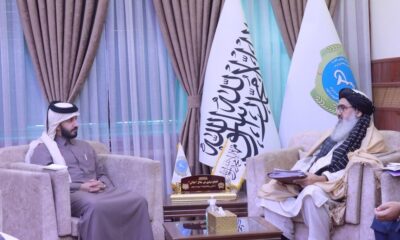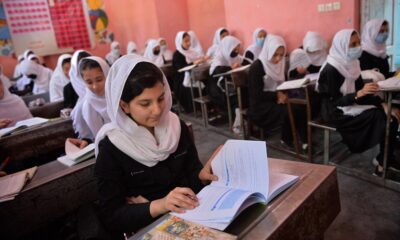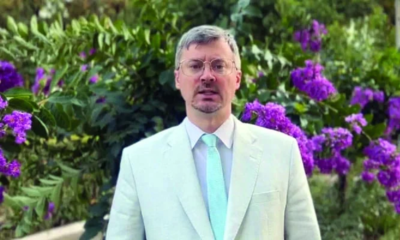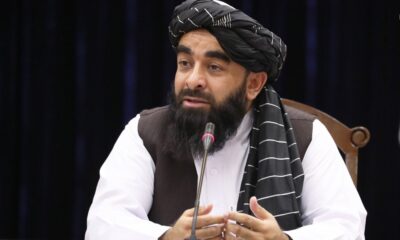World
Turkey faces runoff election with Erdogan leading
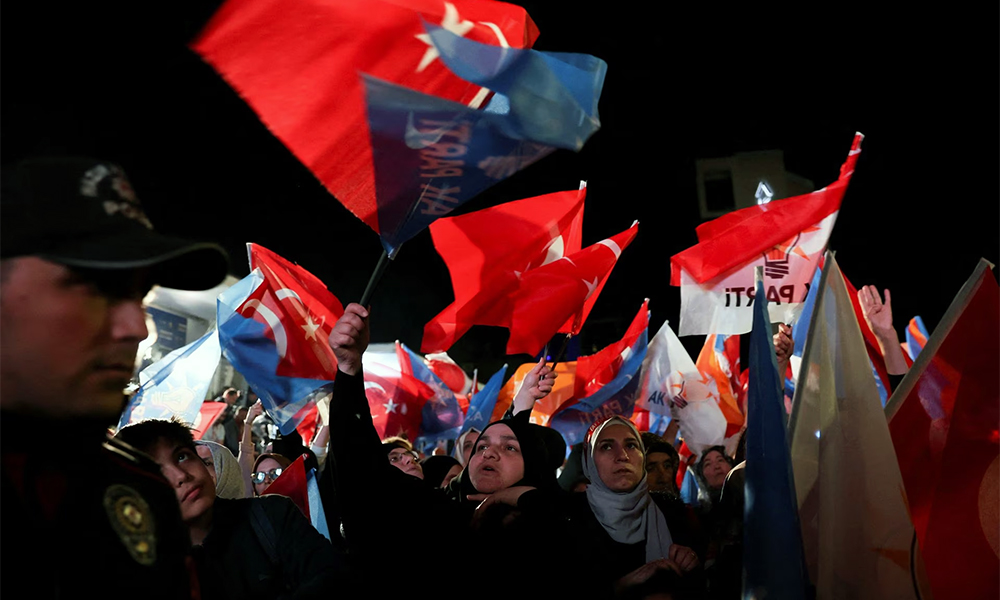
Turkey headed for a runoff vote after President Tayyip Erdogan led over his opposition rival Kemal Kilicdaroglu in Sunday’s election but fell short of an outright majority to extend his 20-year rule of the NATO-member country, Reuters reported.
Neither Erdogan nor Kilicdaroglu cleared the 50% threshold needed to avoid a second round, to be held on May 28, in an election seen as a verdict on Erdogan’s increasingly authoritarian path.
The presidential vote will decide not only who leads Turkey but also whether it reverts to a more secular, democratic path, how it will handle its severe cost of living crisis, and manage key relations with Russia, the Middle East and the West, read the report.
Kilicdaroglu, who said he would prevail in the runoff, urged his supporters to be patient and accused Erdogan’s party of interfering with the counting and reporting of results.
But Erdogan performed better than pre-election polls had predicted, and he appeared in a confident and combative mood as he addressed his supporters.
“We are already ahead of our closest rival by 2.6 million votes. We expect this figure to increase with official results,” Erdogan said.
With almost 97% of ballot boxes counted, Erdogan led with 49.39% of votes and Kilicdaroglu had 44.92%, according to state-owned news agency Anadolu. Turkey’s High Election Board gave Erdogan 49.49% with 91.93% of ballot boxes counted, Reuters reported.
Thousands of Erdogan voters converged on the party’s headquarters in Ankara, blasting party songs from loudspeakers and waving flags. Some danced in the street.
“We know it is not exactly a celebration yet but we hope we will soon celebrate his victory. Erdogan is the best leader we had for this country and we love him,” said Yalcin Yildrim, 39, who owns a textile factory.
The results reflected deep polarization in a country at a political crossroads. The vote was set to hand Erdogan’s ruling alliance a majority in parliament, giving him a potential edge heading into the runoff.
Opinion polls before the election had pointed to a very tight race but gave Kilicdaroglu, who heads a six-party alliance, a slight lead. Two polls on Friday showed him above the 50% threshold.
The country of 85 million people – already struggling with soaring inflation – now faces two weeks of uncertainty that could rattle markets, with analysts expecting gyrations in the local currency and stock market, Reuters reported.
“The next two weeks will probably be the longest two weeks in Turkey’s history and a lot will happen. I would expect a significant crash in the Istanbul stock exchange and lots of fluctuations in the currency,” said Hakan Akbas, managing director of Strategic Advisory Services, a consultancy.
“Erdogan will have an advantage in a second vote after his alliance did far better than the opposition’s alliance,” he added.
A third nationalist presidential candidate, Sinan Ogan, stood at 5.3% of the vote. He could be a “kingmaker” in the runoff depending on which candidate he endorses, analysts said.
The opposition said Erdogan’s party was delaying full results from emerging by lodging objections, while authorities were publishing results in an order that artificially boosted Erdogan’s tally.
Kilicdaroglu, in an earlier appearance, said that Erdogan’s party was “destroying the will of Turkey” by objecting to the counts of more than 1,000 ballot boxes. “You cannot prevent what will happen with objections. We will never let this become a fait accompli,” he said.
But the mood at the opposition party’s headquarters, where Kilicdaroglu expected victory, was subdued as the votes were counted. His supporters waved flags of Turkey’s founder Mustafa Kemal Ataturk and beat drums.
The choice of Turkey’s next president is one of the most consequential political decisions in the country’s 100-year history and will reverberate well beyond Turkey’s borders, Reuters reported.
A victory for Erdogan, one of President Vladimir Putin’s most important allies, will likely cheer the Kremlin but unnerve the Biden administration, as well as many European and Middle Eastern leaders who had troubled relations with Erdogan.
Turkey’s longest-serving leader has turned the NATO member and Europe’s second-largest country into a global player, modernised it through megaprojects such as new bridges and airports and built an arms industry sought by foreign states.
But his volatile economic policy of low interest rates, which set off a spiralling cost of living crisis and inflation, left him prey to voters’ anger. His government’s slow response to a devastating earthquake in southeast Turkey that killed 50,000 people earlier this year added to voters’ dismay.
Kilicdaroglu has pledged to revive democracy after years of state repression, return to orthodox economic policies, empower institutions that lost autonomy under Erdogan and rebuild frail ties with the West.
Thousands of political prisoners and activists could be released if the opposition prevails, read the report.
Critics fear Erdogan will govern ever more autocratically if he wins another term. The 69-year-old president, a veteran of a dozen election victories, says he respects democracy.
In the parliamentary vote, the People’s Alliance of Erdogan’s Islamist-rooted AKP, the nationalist MHP and others fared better than expected and were headed for a majority.
World
Secretive Chinese network tries to lure fired US federal workers, research shows
Researcher identifies “network of fake consulting and headhunting firms”

A network of companies operated by a secretive Chinese tech firm has been trying to recruit recently laid-off U.S. government workers, according to job ads and a researcher who uncovered the campaign, Reuters reported Wednesday.
Max Lesser, a senior analyst on emerging threats with the Washington-based think tank Foundation for Defense of Democracies, said some companies placing recruitment ads were “part of a broader network of fake consulting and headhunting firms targeting former government employees and AI researchers.”
Little information is publicly available on the four consultancies and recruitment companies allegedly involved in the network, which in some cases shared overlapping websites, were hosted on the same server, or had other digital links, according to Reuters’ reporting and Lesser’s research.
The four companies’ websites are hosted at the same IP address alongside Smiao Intelligence, an internet services company whose website became unavailable during Reuters’ reporting.
Reuters could not determine the nature of the relationship between Smiao Intelligence and the four companies.
The news agency’s attempts to track down the four companies and Smiao Intelligence ran into numerous dead-ends including unanswered phone calls, phone numbers that no longer work, fake addresses, addresses that lead to empty fields, unanswered emails and deleted job listings from LinkedIn.
Lesser, who uncovered the network and shared his research with Reuters ahead of publication, said the campaign follows “well-established” techniques used by previous Chinese intelligence operations.
“What makes this activity significant,” he said, “is that the network seeks to exploit the financial vulnerabilities of former federal workers affected by recent mass layoffs.”
Reuters could not determine if the companies are linked to the Chinese government or whether any former federal workers were recruited.
Asked about the research, three intelligence analysts told Reuters the network appeared to be a prime example of how foreign-linked entities are trying to gather intelligence from staff fired or forced into retirement by President Donald Trump and billionaire tech tycoon Elon Musk’s Department of Government Efficiency.
A spokesperson for the Chinese Embassy in Washington told Reuters in an email that China was unaware of any of the entities allegedly involved in the campaign and Beijing respects data privacy and security.
A White House spokesperson said China was constantly trying to exploit the United States’ “free and open system” through espionage and coercion.
“Both active and former government employees must recognize the danger these governments pose and the importance of safeguarding government information,” the spokesperson said.
One of the companies in the network, RiverMerge Strategies, bills itself on its website as a “professional geopolitical risk consulting company” and posted two since-deleted job listings on its since-removed LinkedIn page in mid-February.
One ad that sought a “Geopolitical Consulting Advisor” with experience with government agencies, international organizations, or multinational corporations, displayed that it had more than 200 applications, according to a screenshot of the LinkedIn post.
The other sought a human resources specialist who could “utilize a deep understanding of the Washington talent pool to identify candidates with policy or consulting experience,” and “leverage connections to local professional networks, think tanks, and academic institutions.”
World
Russian missile attack wounds 88 in Ukraine’s Sumy, officials say
Zelenskiy said Russia was “the only entity prolonging this war and tormenting both our people and the entire world.
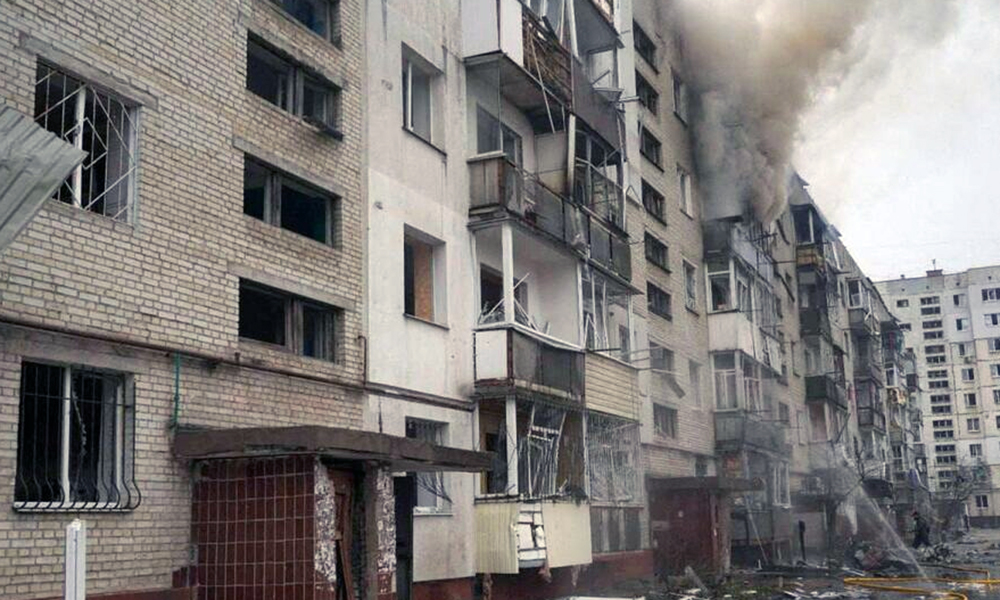
A Russian missile attack hit a densely-populated district of Ukraine’s northeastern city of Sumy, wounding 88 people, including 17 children, on Monday as ceasefire talks, ploughed on, officials said.
Regional governor Volodymyr Artiukh announced the latest casualty toll on national television. He said many more children had escaped injury as they had been evacuated to air raid shelters, Reuters reported.
“They were in the area in a densely-populated area hit by the enemy strike,” Artiukh told the television.
“Two schools fell within the impact zone. I was present when our rescuers cleared the locations where the children were. They were in protective structures. All the children were rescued and evacuated to a safe place.”
Several high-rise residential blocks in the city centre were also damaged, read the report.
Artiukh had earlier spoken in a video that he said was shot at the scene with heavy black smoke, fires and a car with shattered windows in the background. Smoke also rose from the upper floors of a five-storey residential block nearby.
Ukrainian President Volodymyr Zelenskiy deplored the attack in his nightly video address as the latest example of “losses, pain and destruction, something Ukraine never wanted.”
The missile struck the city as Russian and U.S. officials met in Saudi Arabia to discuss a possible ceasefire.
Zelenskiy said Russia was “the only entity prolonging this war and tormenting both our people and the entire world.
“To force Russia into peace, strong measures and decisive actions are needed,” he said. “We are ready to support every strong initiative that makes diplomacy more effective.”
Foreign Minister Adrii Sybiha said Moscow was speaking of peace “while carrying out brutal strikes on densely populated residential areas in major Ukrainian cities.”
“Instead of making hollow statements about peace, Russia must stop bombing our cities and end its war on civilians,” Sybiha said.
Acting Sumy mayor Artem Kobzar said on Telegram an industrial facility was attacked but did not name it.
Sumy, about 30 km (20 miles) from the Russian border, comes under constant drone and missile strikes from Russia.
World
Putin and Trump may have spoken more than twice, Kremlin says
Washington Post journalist Bob Woodward in his 2024 book “War” reported that Trump had direct conversations as many as seven times with Putin after he left the White House in 2021.
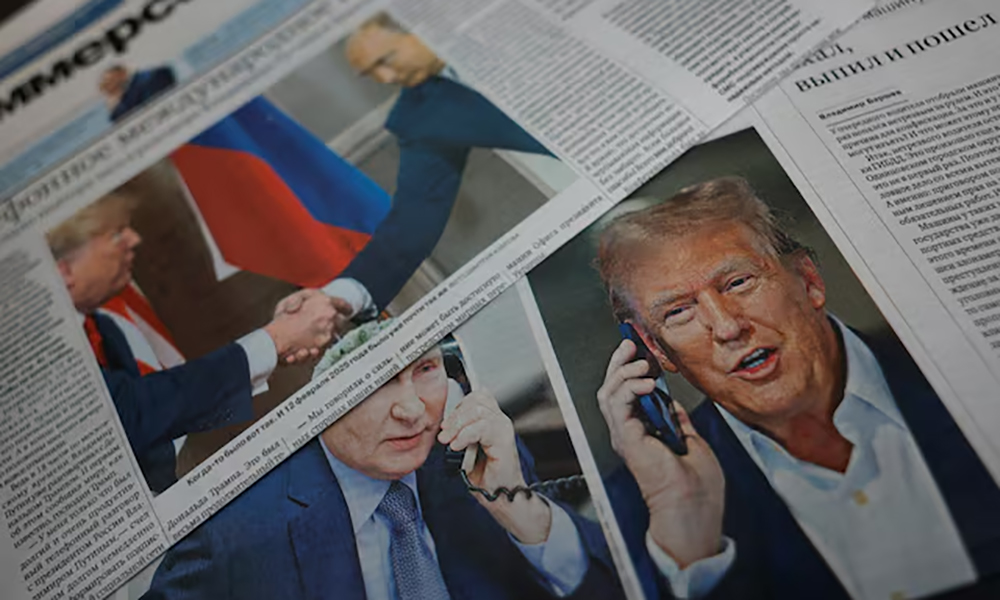
Russian President Vladimir Putin and U.S. President Donald Trump may have had more contacts than the two publicly announced telephone calls over recent months, the Kremlin said in video footage published by state television on Sunday.
Trump, who says he wants to be remembered as a peacemaker, has repeatedly said that he wants the three-year conflict in Ukraine to end and has warned of the risks of it escalating into a world war between the United States and Russia.
There have so far been two announced phone calls between Putin and Trump this year – on Feb. 12 and on March 18 – though there has been speculation about much more frequent contact, and also reports that they spoke before Trump was elected last year.
When asked by the most prominent Kremlin correspondent for state television about remarks by Trump that indicated there may have been more than two calls, Kremlin spokesman Dmitry Peskov said information had been released about those calls he knew of.
“Listen, we inform you about the conversations that we are aware of. But we can’t rule out everything else,” Peskov said.
State television’s Pavel Zarubin then asked: “So all sorts of nuances are possible as they say?” to which Peskov replied: “Well, that is how I would answer your question.”
The contacts between Trump and Putin have spooked European leaders who fear the United States could be turning its back on Europe in the hope of striking a peace deal with Russia as part of some broader grand bargain encompassing oil prices, the Middle East and competition with China.
Trump told the Washington Examiner, that he had been speaking to the Russian leader for weeks.
Before the contacts with Trump, Putin last spoke to a sitting U.S. president in February 2022, when he and Joe Biden spoke shortly before the Russian leader ordered tens of thousands of troops into Ukraine.
Washington Post journalist Bob Woodward in his 2024 book “War” reported that Trump had direct conversations as many as seven times with Putin after he left the White House in 2021.
Asked if that were true in an interview to Bloomberg last year, Trump said: “If I did, it’s a smart thing.” The Kremlin denied Woodward’s report.
Reuters, The Washington Post and Axios reported separately that Trump and Putin spoke in early November. The Kremlin also denied those reports.
Putin and Trump may have another phone call if Ukraine continues strikes on Russian energy infrastructure, Peskov said.
Putin agreed to the suspension of such attacks in a phone call with Trump last week. Kyiv, which has said it would be willing to take part in such a partial ceasefire if a document setting out its terms is agreed, has accused Russia of not abiding by Putin’s order, something Moscow denies.
“While the Russian side has been sticking to its word for several days now, the word that the president gave, and to the president’s command, which immediately came into force and was immediately implemented, and is still being implemented, the same cannot be said of the Kyiv regime”, Peskov said.
Russia and Ukraine accused each other on Friday of blowing up a Russian gas pumping station in a border area where Ukrainian troops have been retreating. Russia said on Saturday it reserves the right to a “symmetrical response” to Ukrainian attacks on Russian energy facilities.
Asked if Ukraine’s violation of the agreement may become a reason for another Putin-Trump call, Peskov said: “Absolutely. The presidents confirmed their intention to continue contacts as necessary.”
In another clip released on Zarubin’s Telegram channel earlier on Sunday, Peskov said the latest phone call between Putin and Trump was “a step towards a face-to-face meeting”, adding that Russia-U.S. talks in Riyadh scheduled for Monday would also be such a step, Interfax news agency reported.
-

 Latest News5 days ago
Latest News5 days agoAmerican freed by IEA reunited with wife, former cellmate, in US
-
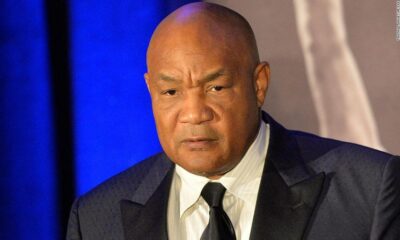
 International Sports4 days ago
International Sports4 days agoBoxing legend George Foreman dies at 76
-

 International Sports3 days ago
International Sports3 days agoRCB bring fireworks to opening night of IPL 2025
-
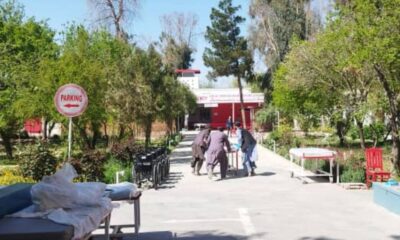
 Latest News4 days ago
Latest News4 days agoEighteen injured after dispute between two brothers in Helmand
-

 Regional5 days ago
Regional5 days agoHamas studies US ‘bridge’ proposal for truce as Israel escalates return to war
-
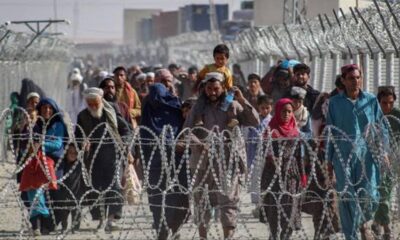
 Latest News3 days ago
Latest News3 days agoTorkham border reopens for pedestrians
-

 Latest News5 days ago
Latest News5 days agoBan on girls’ education in Afghanistan will be ‘catastrophic’: UNICEF
-

 International Sports2 days ago
International Sports2 days agoIPL 2025: Sunrisers on a batting rampage; triumph over Rajasthan Royals




